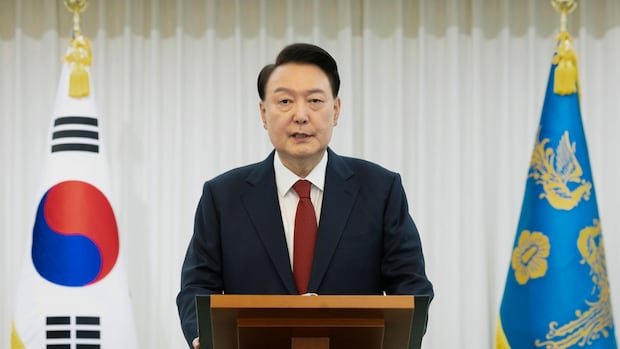South Korean law enforcement authorities have sought a court order to detain accused President Yoon Suk Yeol while they investigate whether his short-lived Dec. 3 martial law decree amounted to rebellion.
The Senior Officials Corruption Investigation Office, which is leading an investigation into the takeover that lasted just hours alongside police and military authorities, confirmed it had applied for the arrest warrant on Monday. Investigators plan to question Yoon for abuse of office and orchestrating a rebellion.
Yoon has dodged multiple requests from the joint investigation team and prosecutors to appear for questioning and has also blocked searches of his offices.
It is unclear whether the court will issue the arrest warrant or whether Yoon can be forced to appear for questioning.
Under the country’s laws, locations potentially related to military secrets cannot be seized or searched without the consent of the person in charge, and Yoon is unlikely to leave his residence voluntarily if he faces imprisonment.
Yoon’s powers as president were suspended after the National Assembly voted on Dec. 14 to impeach him for imposing martial law, which lasted only a few hours but sparked weeks of political unrest, stalled high-level diplomacy and the Financial markets shook. Yoon’s fate now lies with the Constitutional Court. It has begun deliberations on whether to maintain the impeachment process and formally remove Yoon from office or reinstate him.
Yoon has defended the martial law decree as a necessary act of governance and called it a warning against the liberal opposition Democratic Party, which is blocking his agenda with its majority in parliament.
Parliament voted last week to also impeach Prime Minister Han Duck-soo, who took over as acting president after Yoon’s powers were suspended, for refusing to fill three vacancies at the Constitutional Court before the court considered Yoon’s case.
The country’s new interim head is Deputy Prime Minister Choi Sang-mok, who is also finance minister.





